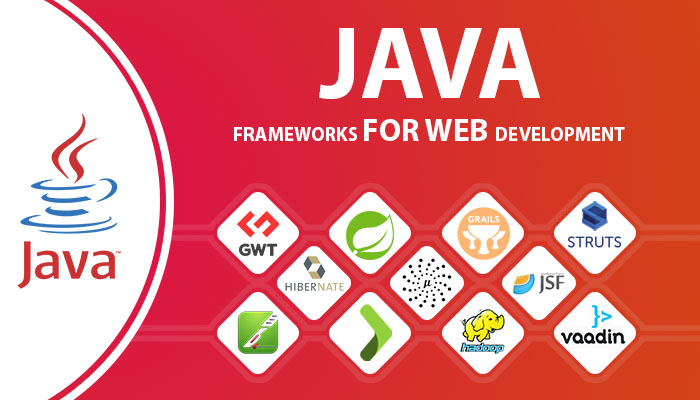Java, with its versatile and powerful features, stands as one of the most widely used programming languages in the world. Java owes its success to a resilient framework that serves as the bedrock of its development landscape. In this examination, we will intricately explore five pivotal core components frameworks that play an indispensable role in shaping Java's development ecosystem. These frameworks, fundamental to the language's evolution, constitute the essential building blocks for developers. From Java Standard Edition (Java SE) providing foundational libraries to the Spring Framework revolutionizing modern development, each framework contributes uniquely to Java's versatility. Join us on this deep dive into the integral frameworks propelling Java's prominence in the world of software development. Understanding these frameworks is essential for any developer aiming to build scalable, maintainable, and efficient Java applications.
Embrace continuous skills upgrade; empower yourself to thrive in ever-evolving landscapes, unlocking new opportunities, and fostering personal and professional growth.

Java Standard Edition (Java SE): The Foundation of Java Development
Java SE lays the foundation for all Java development. It encompasses the core libraries and APIs that facilitate the creation of applications. From basic data structures to file I/O operations, we'll delve into the fundamental elements of Java SE. Understanding these core components is crucial for every Java developer.
Java Enterprise Edition (Java EE): Empowering Enterprise-Level Applications
Java EE extends the capabilities of Java by providing a comprehensive set of APIs for building enterprise-level applications. This section will explore the various components of Java EE, such as Servlets, JSP, and EJB. These components emphasize their role in building distributed and multi-tiered architectures.
Spring Framework: Revolutionizing Java Development
The Spring Framework has become synonymous with modern Java development. Java will dissect the key components of Spring, including the IoC (Inversion of Control) container, AOP (Aspect-Oriented Programming), and the Spring MVC framework.
Hibernate: Simplifying Database Interaction
Database interaction is a critical aspect of many applications, and Hibernate is a widely-used framework for simplifying this process in Java. We can explore the core components of Hibernate, such as the SessionFactory and Hibernate Query Language (HQL).
Apache Maven: Streamlining the Build Process
JBuilding and managing Java projects can be complex, but Apache Maven simplifies this process. This section will delve into the core components of Maven, including the Project Object Model (POM) and the Maven Repository. Maven is automated to build lifecycles, manages dependencies, and enhances collaboration among developers.
Few More Deep Dive into Java Core Components Frameworks
Core JAVA:
Core Java serves as the foundational programming platform for Java development. It encompasses key concepts like object-oriented programming, multithreading, exception handling, and I/O operations. Developers leverage Core Java for building standalone applications, applets, and the backend of web applications. Core Java is essential for mastering advanced Java frameworks and technologies, making it a fundamental skill for any Java developer.
Java Collections Framework (JCF):
The Java Collections Framework is fundamental to managing and manipulating data structures efficiently. We'll explore its hierarchy, delve into key interfaces like List, Set, and Map, and discuss common usage scenarios.
Java Database Connectivity (JDBC):
Connecting Java applications to databases is a crucial aspect of many projects.It will explore JDBC, examining its architecture, understanding how it facilitates database interactions, and showcasing best practices for database connectivity. Examples and code snippets will illustrate concepts such as connection management and result set handling.
JavaServer Faces (JSF):
JSF is a Java web application framework that simplifies the development of user interfaces for Java EE applications. We'll take a closer look at the components, lifecycle, and navigation model of JSF. Practical examples will demonstrate how to create dynamic and interactive web applications using this powerful framework.
Spring Framework:
Spring has become synonymous with Java enterprise development, providing comprehensive solutions for dependency injection, aspect-oriented programming, and more. Our exploration will cover the core concepts of the Spring Framework, including the IoC (Inversion of Control) container and the Spring MVC web framework.
Java Message Service (JMS):
Messaging plays a vital role in distributed systems, and JMS is Java's answer to asynchronous communication. We'll dissect the key components of JMS, such as queues and topics, and explore how it enables reliable and scalable messaging between disparate components. Real-world examples will illustrate the implementation of message-driven beans and the Pub/Sub model.
Conclusion:
In conclusion, a deep understanding of these Java core components frameworks is essential for any developer striving to excel in Java development. From the foundational elements of Java SE to the modern conveniences provided by frameworks like Spring and Hibernate, mastering these components empowers developers to create robust, scalable, and maintainable Java applications.
Embrace the power of Java's core frameworks, and elevate your programming prowess to new heights.In this deep dive into Java's core components frameworks, These frameworks are a cornerstone of the Java development ecosystem, seamlessly handling tasks ranging from collection management to database connectivity, dynamic web interface creation, harnessing the capabilities of the Spring Framework, and enabling asynchronous communication through JMS. Their collective significance underscores their pivotal role in streamlining diverse aspects of Java application development, empowering developers to efficiently navigate challenges and build robust, feature-rich software solutions. Greatcoder technologies PVT LTD Armed with this knowledge, developers can navigate the intricacies of Java programming with confidence, creating solutions that stand the test of time.






